Aspartame has long been a popular artificial sweetener used in many diet sodas, yet concerns about its safety and potential side effects have led many consumers to seek alternative options. Despite the World Health Organization’s warnings, the debate about aspartame’s health risks remains inconclusive, leaving many individuals searching for healthier alternatives to satisfy their cravings for a low-calorie, fizzy beverage.
In response to this growing demand, several beverage companies have started to offer diet sodas without aspartame. These products are formulated with other natural or artificial sweeteners, such as stevia, a natural sugar substitute derived from the leaves of the Stevia rebaudiana plant. Additionally, some sugar-free sodas opt for Splenda, which offers a sweet taste without the associated risks and calories of aspartame.
This rising trend in aspartame-free diet sodas signals a shift in consumer preferences geared towards healthier drink options. By exploring these alternatives, consumers can make better-informed decisions about their beverage choices, ultimately contributing to a more conscious and health-focused market.
Reader's Roadmap
Understanding Aspartame in Diet Sodas
Aspartame is a widely used artificial sweetener found in many diet sodas, such as Diet Coke and Diet Pepsi. It is often utilized as a sugar substitute in low-calorie beverages to provide a sweet taste without the additional calories of sugar. The popularity of aspartame stems from its ability to deliver the desired sweetness while using significantly fewer calories than traditional sugar.
As an artificial sweetener, aspartame is made up of two amino acids, phenylalanine and aspartic acid, combined with a small amount of methanol. It is roughly 200 times sweeter than sugar, which means only a small amount is needed to achieve the desired level of sweetness in a beverage. Consequently, this leads to fewer calories being present in diet sodas and other low-calorie products containing aspartame.
Despite its widespread use, there has been some controversy surrounding aspartame due to concerns about potential health risks. However, various regulatory bodies, such as the US Food and Drug Administration (FDA) and the European Food Safety Authority (EFSA), have conducted extensive research and deemed aspartame safe for general consumption. Nevertheless, some individuals may require alternatives to aspartame due to specific health conditions, such as phenylketonuria (PKU), a rare hereditary disorder that prevents the adequate metabolism of phenylalanine.
Given the market demand for healthier and alternative options, some beverage companies have opted to create diet sodas without aspartame. These alternatives might use other artificial sweeteners or stevia, a naturally derived sweetener. Examples of these aspartame-free diet sodas include Zevia and Pepsi One. By offering a range of sweetening options, manufacturers can cater to consumers’ diverse preferences and requirements, ultimately providing more choices in the ever-growing market for low-calorie beverages.
Negative Effects of Aspartame
Aspartame is a common artificial sweetener found in many diet sodas and sugar-free products. While it has been approved for use by food safety authorities worldwide, some studies have raised concerns about its potential health risks.
One concern is its classification as a possible carcinogen. The International Agency for Research on Cancer (IARC) lists aspartame as a Group 3 agent, meaning it is considered not classifiable as to its carcinogenicity to humans. This indicates that there is not enough evidence to conclusively prove or disprove its carcinogenic effects. However, some animal studies have suggested a link between aspartame and the development of cancer, leading to ongoing debate and investigation into its safety.
In addition to potential carcinogenic risks, aspartame has been associated with headaches in some individuals. Aspartame may trigger headaches or migraines in those who are sensitive to it, though research on this topic has produced mixed results. Some studies have found a connection between aspartame consumption and headache frequency, while others have found no such link.
Insomnia is another reported side effect of aspartame intake, although the evidence supporting this claim is limited. Some individuals may experience difficulty falling asleep or staying asleep after consuming products containing aspartame, but further research is needed to determine the extent of this association.
Finally, some studies have investigated the relationship between aspartame consumption and heart disease. While most research has not found a significant connection, a few studies have identified potential links between aspartame intake and an increased risk of cardiac events or conditions. As with other health concerns surrounding aspartame, the evidence is not conclusive, and more research is required to better understand the potential risks involved.
In summary, aspartame is a widely used artificial sweetener with several potential health concerns, including its classification as a possible carcinogen and its association with headaches, insomnia, and heart disease. Although the evidence is not yet definitive, it is important to remain informed about the potential risks associated with aspartame and consider consuming alternative sweeteners when feasible.
Common Diet Sodas Without Aspartame
Zevia
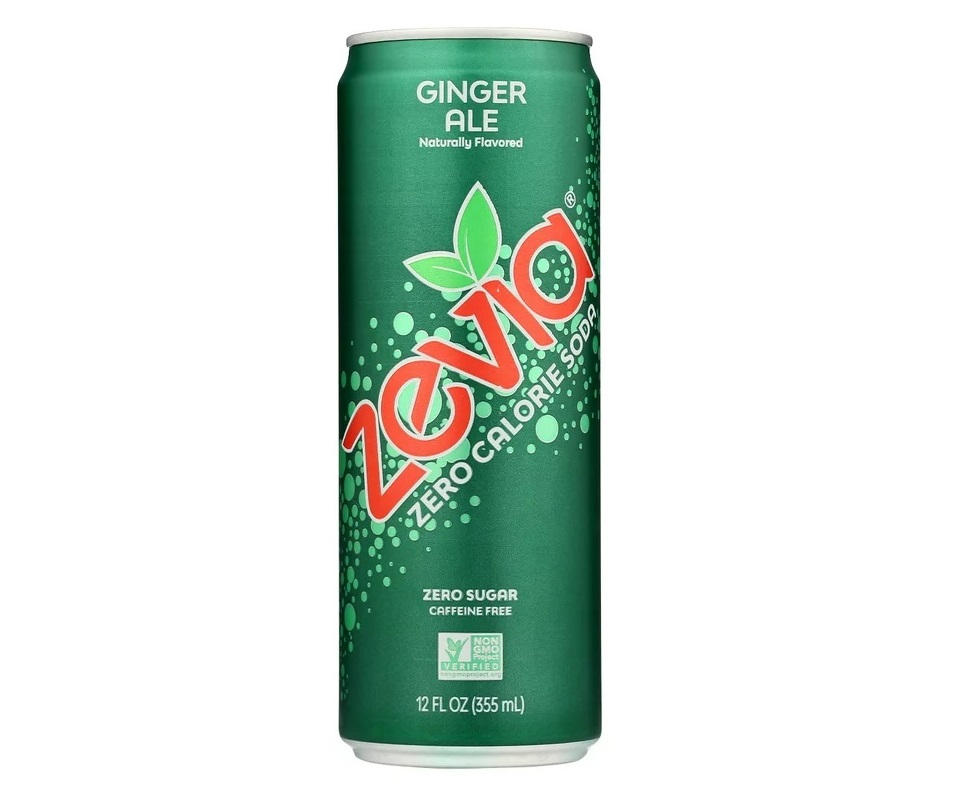
Zevia is a popular brand that offers a variety of aspartame-free diet sodas. Made with stevia, a natural sweetener, Zevia provides a sugar-free option without compromising taste. Their line of sodas includes a Dr. Zevia flavor, which is a healthier alternative to traditional cola products.
Diet Rite
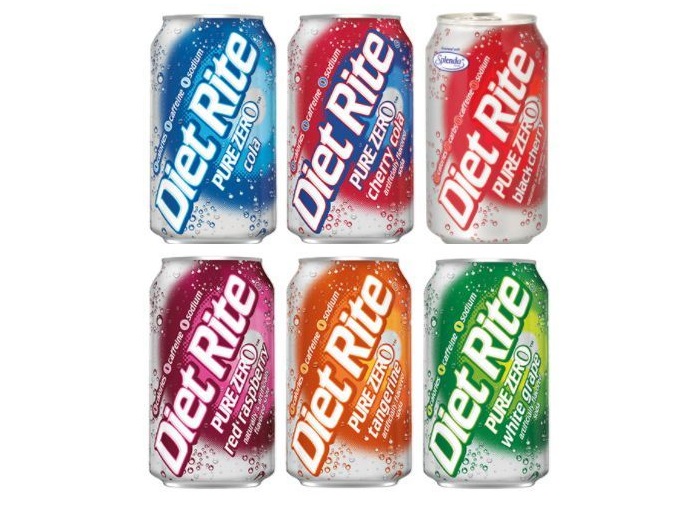
Diet Rite is another aspartame-free option, known as one of the most well-known and widely available diet sodas without aspartame. Produced by the company that manufactures Dr. Pepper and Snapple, Diet Rite has been on the market since 1958.
Fanta Zero
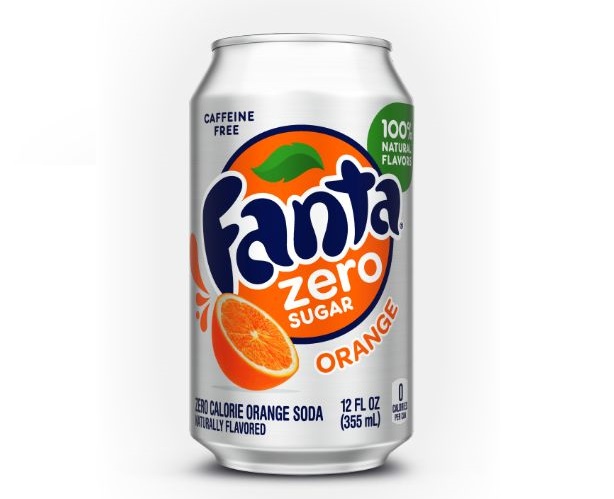
Fanta Zero offers a refreshing fruit-flavored soda without aspartame, making it a tasty yet healthier alternative. Made with sucralose, Fanta Zero delivers a sweet taste while still being diet-friendly.
Hansen’s Soda
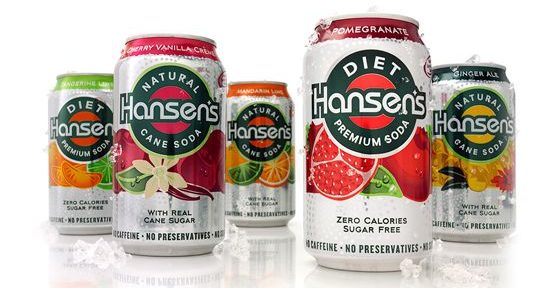
Hansen’s is a brand that creates aspartame-free diet sodas using natural ingredients, like cane sugar. Their diet sodas come in various flavors and provide a more natural option for those seeking to avoid artificial sweeteners like aspartame.
Virgil’s Zero Sugar
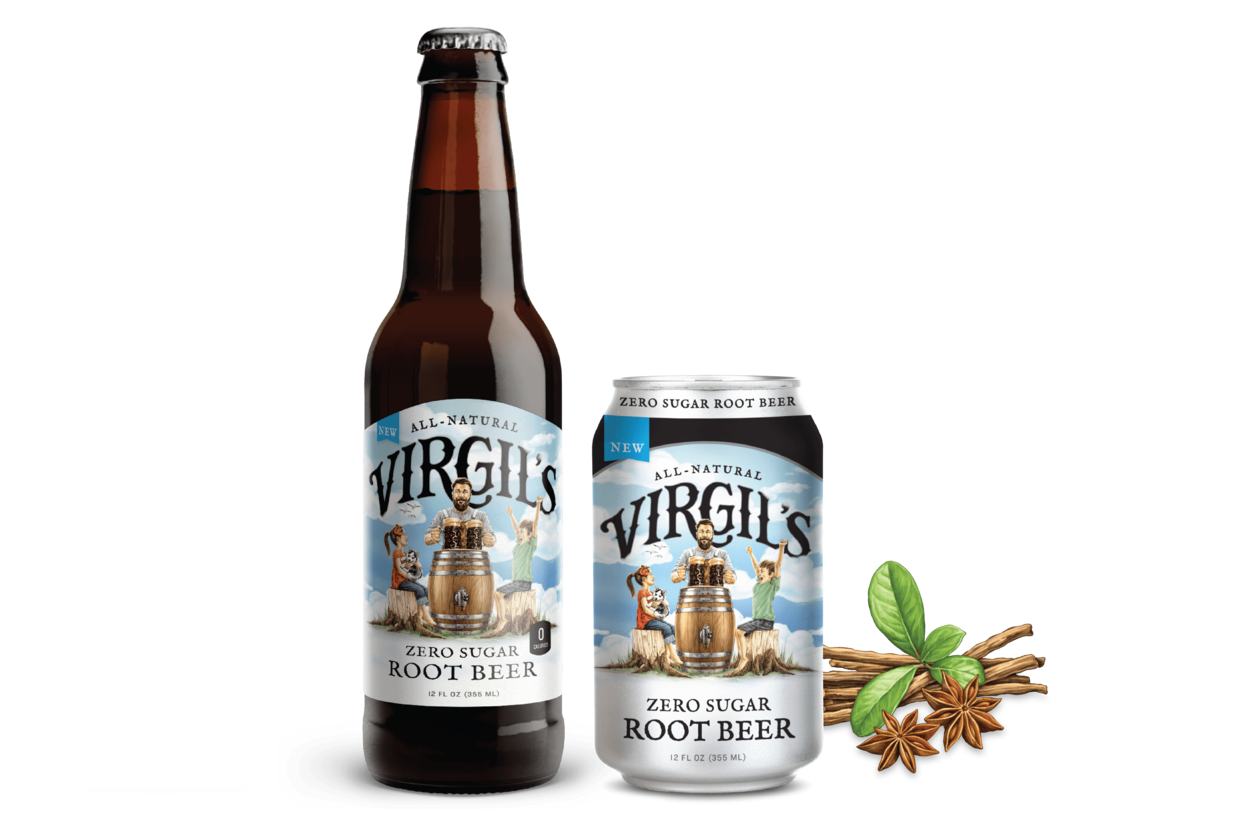
Virgil’s Zero Sugar line of sodas offers a range of aspartame-free options, including root beer and cream soda flavors. Made with natural ingredients and sweetened with stevia, these sodas are a guilt-free choice for those looking to limit their sugar and artificial sweetener intake.
Green Cola
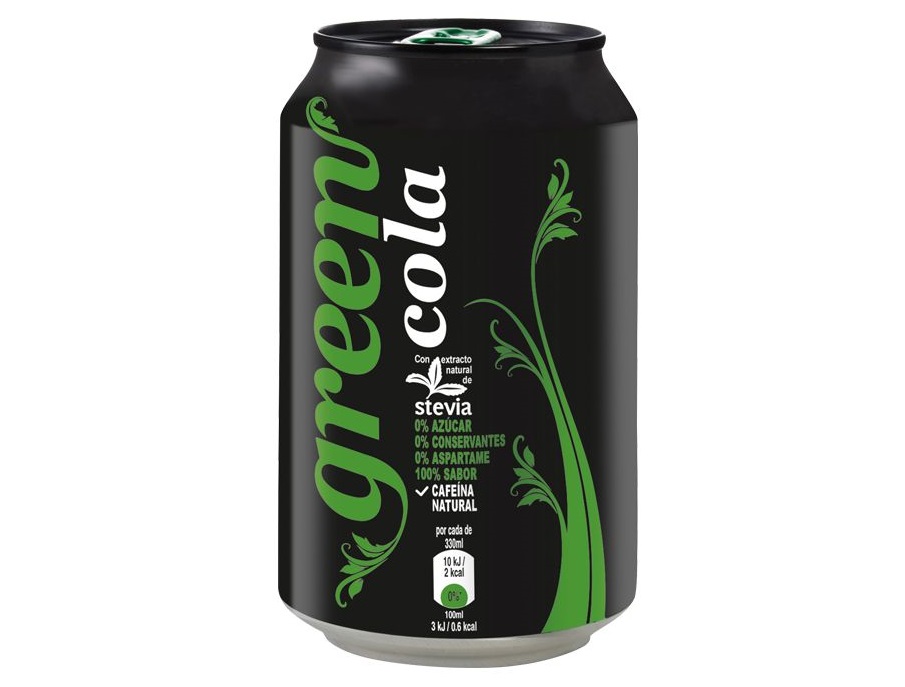
Green Cola is an aspartame-free diet soda that uses stevia as its primary sweetener. Available in traditional cola flavor, Green Cola provides a healthier alternative without sacrificing taste.
In addition to these popular brands, Hansen’s also offers flavored seltzer waters as an alternative to traditional diet sodas. These seltzers are naturally flavored and free of artificial sweeteners, making them a refreshing choice for those avoiding aspartame.
Choosing one of these diet sodas without aspartame can help you maintain a healthier lifestyle while still enjoying a fizzy and refreshing beverage. Remember to consume these sodas in moderation and prioritize staying hydrated with water throughout the day.
Alternative Sweeteners Used
As consumers become more health-conscious, many are turning away from aspartame and seeking alternative sweeteners for their diet sodas. Various natural and artificial sweeteners have been introduced in the market, each with its unique properties and benefits.
One popular natural sweetener used in diet sodas is stevia, which is derived from the leaves of the Stevia rebaudiana plant. Stevia is 200 to 300 times sweeter than sugar, with negligible calories, making it an ideal choice for reduced-calorie beverages.
Another alternative is sucralose, a zero-calorie artificial sweetener commonly known as Splenda. Sucralose is 600 times sweeter than sugar and is not broken down by the body, making it an attractive option for those watching their calorie intake. Some soda brands, like Tango Sugar Free, have opted for sucralose as their sweetener of choice.
Monk fruit extract is another natural sweetener gaining popularity. Derived from the Siraitia grosvenorii fruit, monk fruit extract is 150 to 200 times sweeter than sugar but contains zero calories. It is often combined with other sweeteners like erythritol, a sugar alcohol, to create a balanced taste profile.
Erythritol is another alternative gaining attention due to its low-calorie content and lesser impact on blood sugar levels compared to regular sugar. While it is a sugar alcohol, erythritol has a better-tolerated digestive profile than other sugar alcohols, reducing the chances of gastrointestinal discomfort.
Agave, a natural sweetener derived from the agave plant, is also used in some diet sodas. It has a lower glycemic index than sucrose, meaning it has a slower impact on blood sugar levels, making it a favorable option for those looking to avoid blood sugar spikes.
In conclusion, there are several alternative sweeteners available for use in diet sodas, ranging from natural options like stevia and monk fruit extract to artificial sweeteners like sucralose. Consumers have a variety of choices to find a diet soda that aligns with their preferences and health goals.
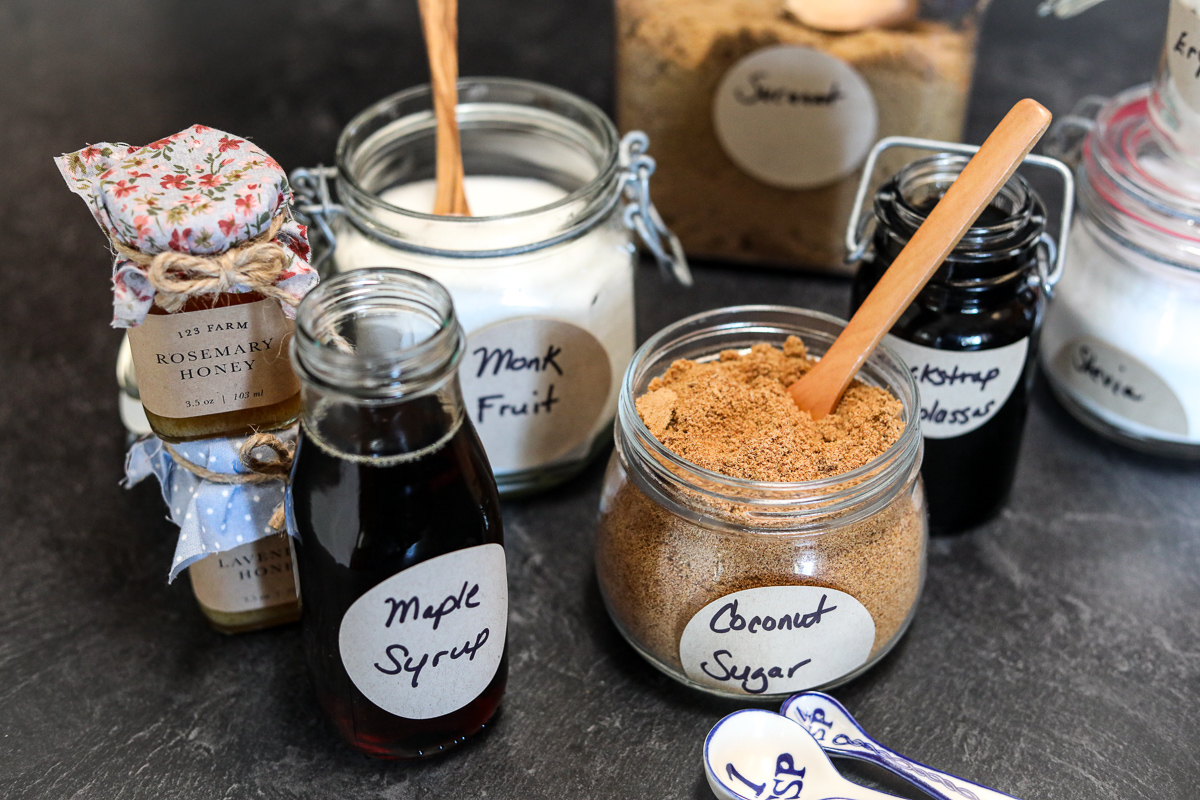
Health Benefits and Risks of Alternatives
When choosing diet sodas without aspartame, it is important to consider the health benefits and risks associated with the alternatives present in the beverages. Common sugar substitutes include stevia, sucralose, and acesulfame potassium. These options may have varying effects on the body and overall health.
Drinks sweetened with stevia, for example, are considered low-calorie and guilt-free options. Stevia is a natural sweetener derived from the leaves of the Stevia rebaudiana plant. It contains no calories and does not raise blood sugar levels, making it a suitable option for those watching their sugar intake and aiming to reduce their risk of heart disease. However, it is essential to note that overconsumption of any sweeteners, even natural ones like stevia, may still contribute to increased sugar cravings.
Sucralose, commonly known as Splenda, is another sugar substitute often found in diet sodas. It is a no-calorie sweetener and has been deemed safe by various health authorities. Sucralose may be a viable option for those seeking lower-calorie beverage options, but it has been shown in some studies to alter gut health. Some research suggests that sucralose may negatively impact the balance of good and bad bacteria in the gut, potentially affecting gut health and the effectiveness of probiotics.
Acesulfame potassium, also known as Ace-K, is a calorie-free sweetener that is often combined with other sugar substitutes in diet beverages. It is considered safe by health authorities, but its consumption may have an impact on oxidative stress in the body. High consumption of acesulfame potassium can lead to an imbalance between antioxidants and free radicals, potentially contributing to increased inflammation and cellular damage.
Additionally, diet sodas, regardless of the sweetener used, may not contribute significantly to hydration. Water remains the best option for proper hydration and offers numerous health benefits, such as maintaining kidney function and promoting healthy skin. To maximize the health benefits of beverages, consider incorporating drinks with naturally occurring antioxidants, such as herbal teas and fruit-infused waters. These options can provide a flavor boost while also supporting overall health.
In summary, while diet sodas without aspartame can offer some advantages in calorie and sugar reduction, it is important to be aware of the potential health risks associated with the alternative sweeteners used. Balancing consumption of these beverages with healthier options, such as water and antioxidant-rich drinks, is key to promoting overall well-being.
Popular Soda Flavors Without Aspartame
Many soda enthusiasts are keen to find alternatives to sodas containing artificial sweeteners like aspartame. Here are some popular soda flavors that can be found in aspartame-free versions.
Ginger ale has a distinctive taste that many people enjoy and can be found without aspartame in certain brands, such as Zevia Ginger Ale. Known for its stomach-soothing properties, ginger ale provides a refreshing option for those seeking an aspartame-free soda.
Root beer is a classic flavor that many people associate with childhood, and there are aspartame-free options available, such as Virgil’s All-Natural Root Beer. This creamy and slightly spicy soda is a beloved choice among soda fans.
Black cherry sodas provide a fruity, tangy twist on traditional cola flavors. By choosing brands like Diet Rite Black Cherry, you can enjoy this flavor without the presence of aspartame.
Citrus lovers have options as well with flavors like lemon-lime, tangerine, and grapefruit. These aspartame-free alternatives can be found in sodas such as Pepsi True and Zevia Grapefruit Citrus, providing a perfect balance of sweetness and tang.
Sodas with white grape, pineapple, and orange flavors can also be enjoyed without aspartame, and can be found in brands like Honest Fizz or Blue Sky. These fruity options are ideal for those who prefer a sweet, tropical taste.
Finally, cream soda is another popular flavor that can be found in aspartame-free versions. Brands like Zevia Cream Soda offer a velvety smooth, caramel-like taste for fans of this classic flavor.
In summary, individuals searching for diet sodas without aspartame have plenty of options when it comes to popular flavors like ginger ale, root beer, black cherry, citrus varieties, and cream soda. Brands such as Zevia, Diet Rite, Pepsi True, Honest Fizz, and Blue Sky provide tasty alternatives for those looking to enjoy their favorite soda flavors without the concern of aspartame.
Refreshing Aspartame-Free Beverages
When looking for an alternative to diet soda, there are plenty of aspartame-free options available. These beverages are tastier and healthier without sacrificing the satisfaction of a refreshing, fizzy drink.
Sparkling water is a fantastic choice for those seeking a sugar- and calorie-free alternative. Brands such as Bubly, Polar, and Perrier offer a wide range of flavored sparkling waters with subtle, natural flavors. Varieties like coconut lime and fruit juice infusions are delightful and refreshing.
Seltzer and mineral water are other popular options that also come in various flavors. Similar to sparkling water, these drinks contain no aspartame and often have added minerals for enhanced taste. Spindrift, for example, is a brand that uses real fruit juice to flavor their sparkling waters, providing an authentic taste without artificial sweeteners.
For those interested in gut health, kombucha is a fantastic choice. As a fermented tea, kombucha contains probiotics and antioxidants, making it a healthier alternative to diet sodas. With its unique, tangy taste and natural carbonation, kombucha is both delicious and beneficial.
Tea enthusiasts will also find solace in the variety of teas available. Options like chamomile tea offer a soothing and calming experience, while others such as green or black tea provide a more energizing and invigorating flavor. Iced tea is another versatile option and can be enjoyed with or without a touch of sweetness, depending on your preference.
Lastly, don’t forget about the simplest yet most essential beverage: water. Whether it’s filtered tap water, bottled water, or mineral water, staying hydrated is vital for your overall health and well-being. Adding a splash of fruit juice to your water can also create a tasty, aspartame-free drink.
By replacing diet sodas with these refreshing aspartame-free beverages, not only will you improve your overall health, but you will also discover a world of new flavors and satisfying experiences.
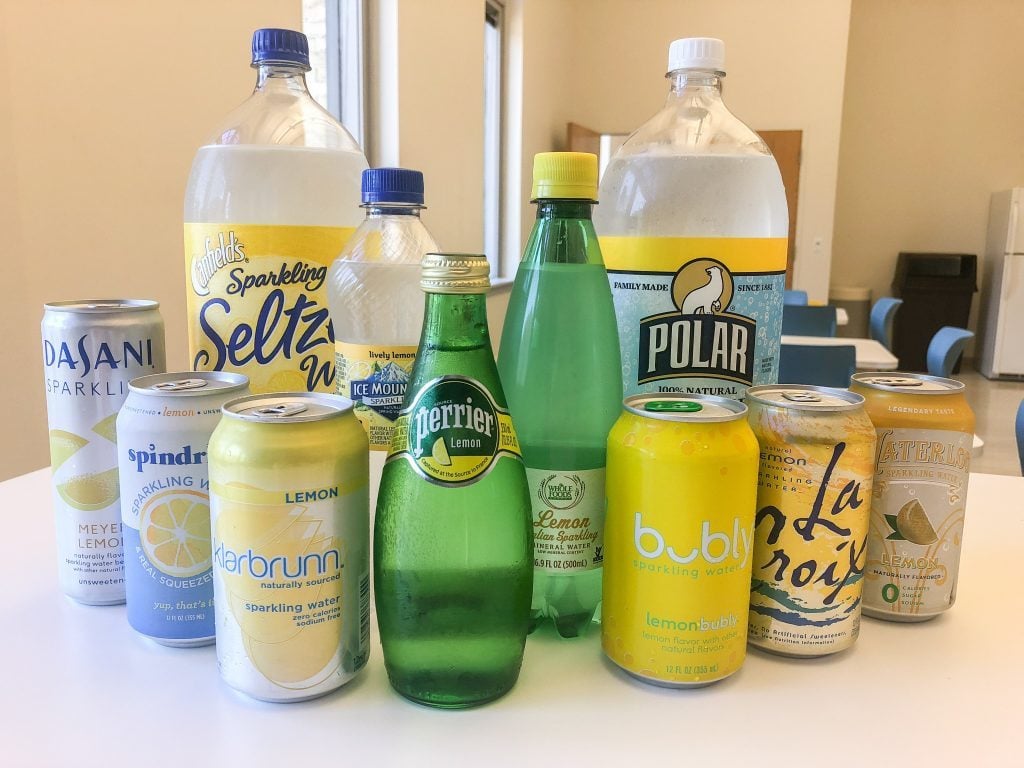
Regulatory Perspective on Aspartame
The U.S. Food and Drug Administration (FDA) has been regulating the use of aspartame, an artificial sweetener, since 1974 and approved it as a general-purpose sweetener in 1996. The FDA established an acceptable daily intake for aspartame, which is 50 milligrams per kilogram of body weight, per day.
In recent years, concerns about the safety of aspartame have been raised. The World Health Organization (WHO) declared that the artificial sweetener is “possibly carcinogenic to humans,” adding it to the same risk category as breathing in engine exhaust. This has led to increased public scrutiny of aspartame and a growing interest in diet sodas that are free of this controversial ingredient.
Despite the concerns, both the FDA and the European Food Safety Authority (EFSA) have maintained their positions that the current levels of recommended daily intake of aspartame adequately protect consumers. Since 1977, scientists have warned of the risks of brain lesions, cancer, and neurological disorders from consuming aspartame. However, regulatory agencies have not moved to ban aspartame based on the available evidence.
In the meantime, consumers seeking alternatives to aspartame-containing diet sodas have various options, such as Diet Rite, which is among the well-known and widely available diet sodas that do not contain aspartame.
Healthy Habits for Sugar Intake
Managing sugar intake is essential for maintaining overall health, especially for those who want to limit their consumption of artificial sweeteners such as aspartame. There are various ways to reduce sugar intake and choose healthier alternatives without compromising taste.
When it comes to sweetening your drinks or food, opt for natural sugar substitutes rather than artificial ones. One good option is cane sugar. Although it still contains calories like regular sugar, it undergoes less processing and retains some nutrients. Other natural sugar substitutes include stevia, honey, and maple syrup.
Reducing the consumption of added sugars in your diet is another crucial habit to adopt. Foods with added sugars are typically high in calories and offer low nutritional value. While it’s not feasible to eliminate them altogether, cutting down their intake by reading labels and choosing healthier options is possible.
Swapping sugary drinks with water or herbal teas is a simple yet effective way to lower your sugar intake. However, if you still crave carbonated beverages, consider choosing drinks sweetened with sugar alcohols or low-calorie alternatives that do not contain aspartame. These options usually have fewer calories and a lower impact on blood sugar levels.
In summary, favoring natural sugar substitutes, reducing added sugar, and considering low-calorie alternatives without aspartame are essential practices for maintaining a healthy sugar intake. By adopting these habits, you can still enjoy deliciously sweetened foods and drinks without adverse health effects.
Future of Diet Sodas Without Aspartame
As health-conscious consumers seek alternatives to traditional diet sodas containing aspartame, the market for aspartame-free sodas is growing. Many companies are working to create healthier soda alternatives that do not rely on artificial sweeteners. There is also a trend towards crafting zero-calorie sodas with natural ingredients that promote overall health and wellness.
One area of innovation in the aspartame-free soda industry involves incorporating prebiotics into beverage formulations. Prebiotics support gut health and can lead to various health benefits, such as improved digestion and immune function. By adding prebiotics to their formulas, health-focused soda manufacturers are hoping to offer consumers guilt-free carbonated beverages that not only taste good but also boost their health.
In addition to prebiotics, many companies are exploring alternative sweeteners derived from natural sources, such as cassava root syrup. Cassava root syrup is a low-glycemic sweetener that adds sweetness without spiking blood sugar levels. This sweetener can be used as a healthier alternative to traditional sugar and aspartame in producing aspartame-free sodas.
Another significant growth area in the market for healthy sodas is the popularity of carbonated water. Sparkling water, sometimes infused with fruit flavors, provides a refreshing alternative to sugary sodas and aspartame-laden diet drinks. As more consumers embrace a healthier lifestyle, companies are responding by offering a wider range of carbonated water products that cater to diverse tastes and preferences.
Ultimately, the future of diet sodas without aspartame looks promising as companies continue to innovate and prioritize consumer health. By offering healthier soda alternatives that are both enjoyable and beneficial, these beverages may become a major player in the soft drink market, providing nutritious and refreshing options for those seeking better-for-you options.

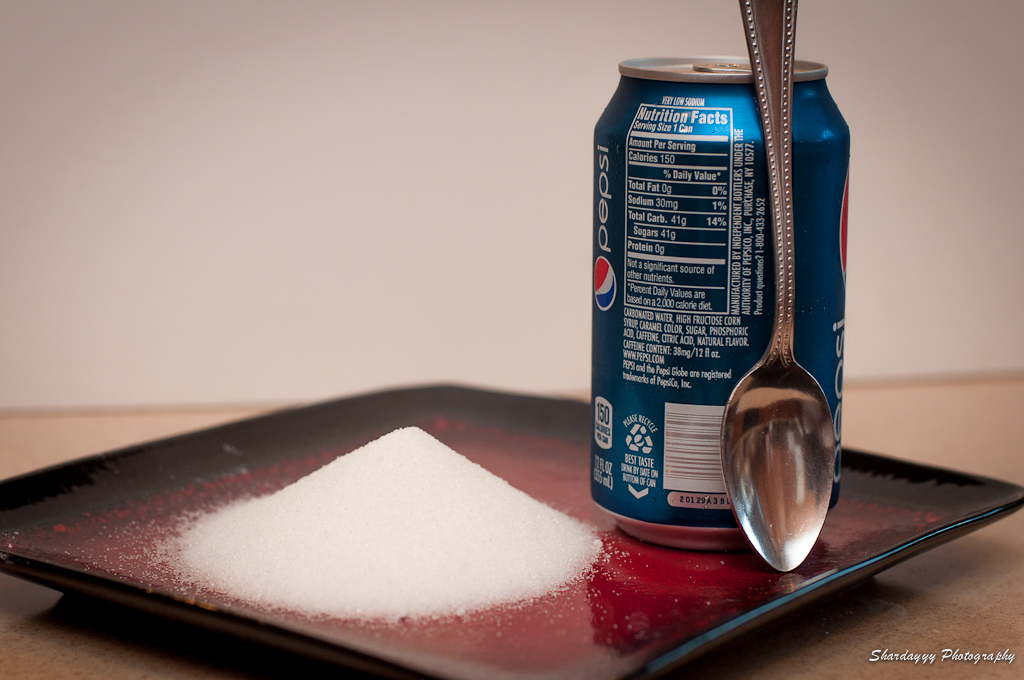





Leave a Reply
View Comments